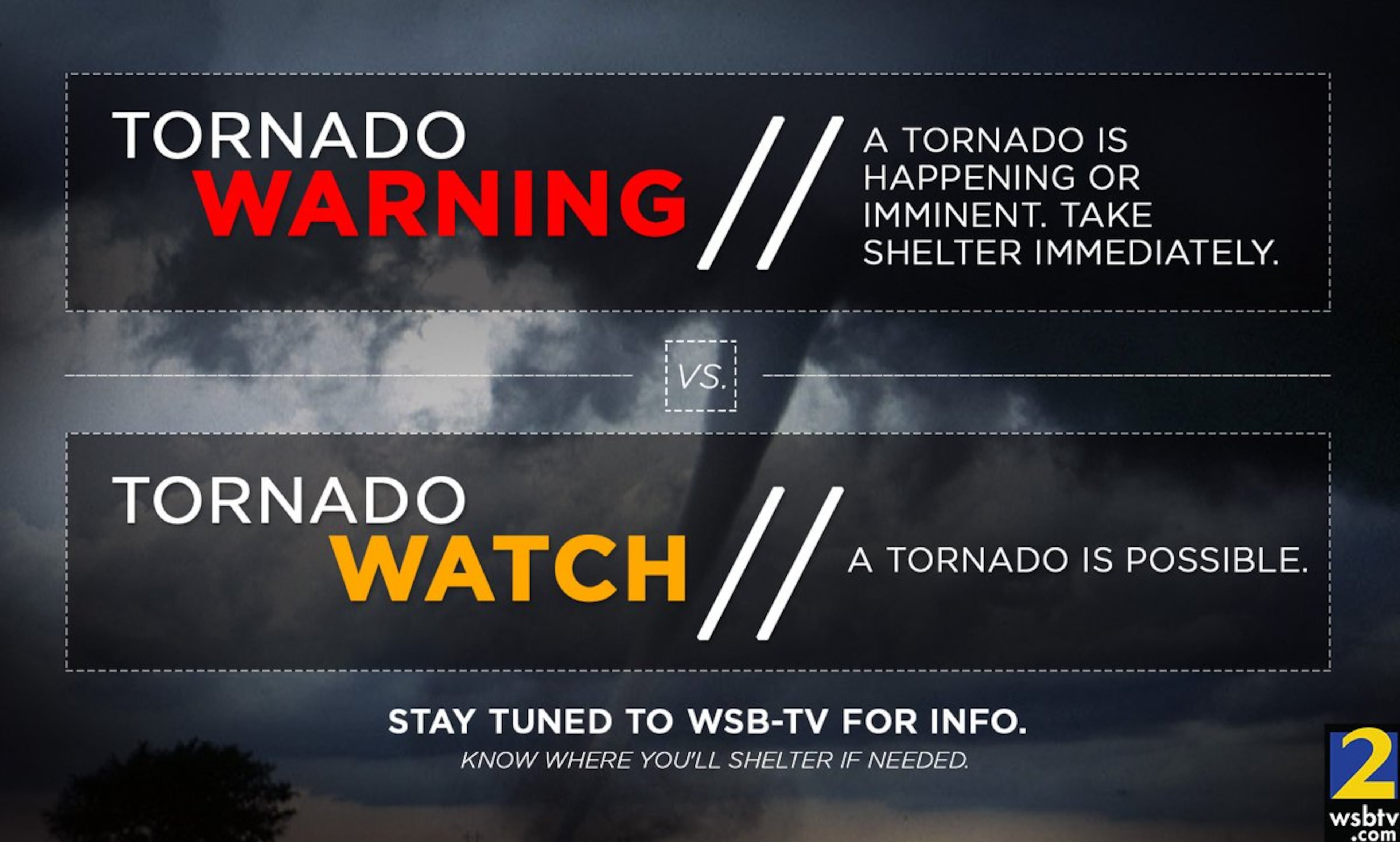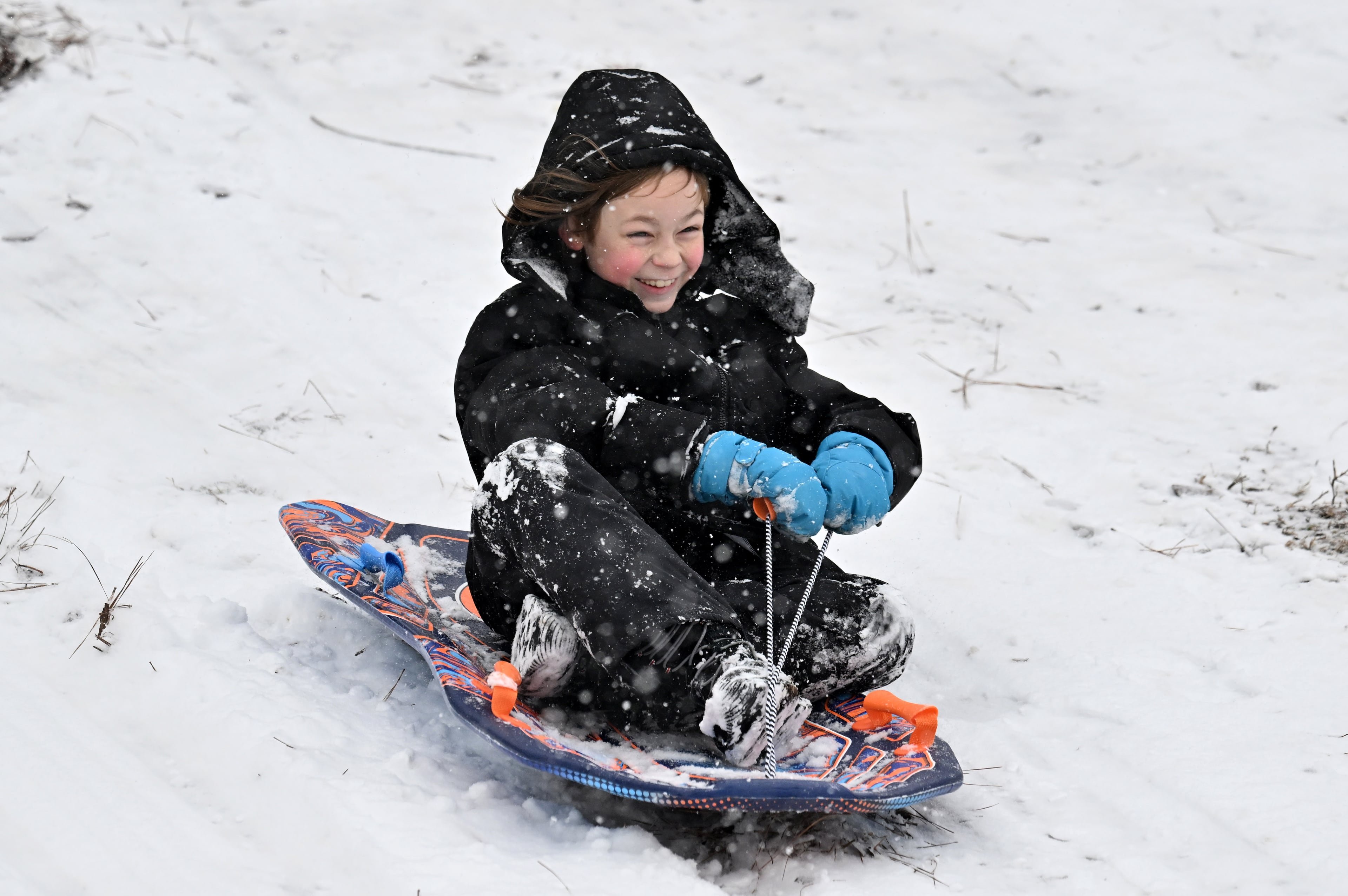What’s the difference between a tornado watch and warning?
What’s the difference between a tornado “watch” and a tornado “warning”?
According to the Georgia Emergency Management Agency, a “watch” means a tornado is possible in your area. A “warning” means a tornado has been spotted, and you need to take shelter immediately.

Where should you take shelter?
» Storm cellars or basements provide the best protection.
» If that’s not an option, go into an interior room or hallway on the lowest floor.
» In a high-rise, go to a small interior room or hallway on the lowest floor.
» Stay away from windows, doors and outside walls. Stay away from corners; they attract debris.
» A vehicle, trailer or mobile home does not provide good protection.
» If shelter is not available, lie flat in a ditch or other low-lying area. Do not get under an overpass or bridge
The American Red Cross also suggests that you:
» Listen to local news or a NOAA Weather Radio to stay informed.
» Know your community’s warning system, because they aren’t all the same.
» Practice tornado drills so children know what to do
» Remove diseased and damaged limbs from trees before high winds hit.
» Move or secure lawn furniture, trash cans, hanging plants or anything else that can be picked up by the wind and become a projectile.
» Watch for tornado danger signs: dark, often greenish clouds; wall cloud – an isolated lowering of the base of a thunderstorm; cloud of debris; large hail; funnel cloud – a visible rotating extension of the cloud base; roaring noise.
After the storm
» Finding important documents (deeds, insurance, etc.) will be easier if you’ve stored them in a safe-deposit box or other safe place.
» Use bottled water or boil tap water before drinking it. Discard any food that comes in contact with contaminated water.
» Inspect your home for damage, and take steps to prevent more damage (cover holes with plywood or plastic).
» Stay out of damaged buildings and away from downed power lines.
» You can let family know you’re safe by registering on the American Red Cross Safe and Well website. You can also call 1-866-GET-INFO (1-866-438-4636) to register.

